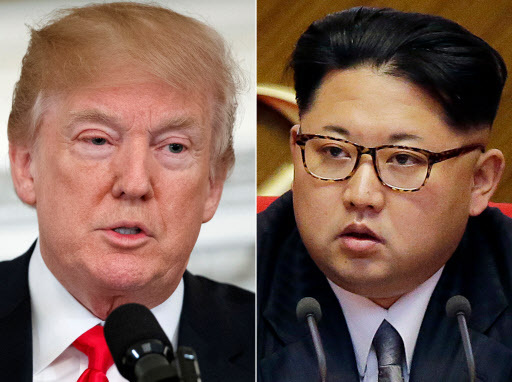A South Korean diplomat said Wednesday that the lifting of sanctions against North Korea can come after the communist regime passes an "irreversible point of denuclearization."
 |
(Yonhap) |
Rhee Dong-yeol, the director general of the foreign ministry's Korean Peninsula regime bureau, also said that Seoul is considering proposing high-level inter-Korean talks as part of efforts to facilitate dialogue between the United States and the North.
"If the denuclearization process passed an irreversible point, we can possibly do the lifting of the sanctions," he said during a peace forum organized by the Swedish Embassy in Seoul. "But before that, it is too early to say about the lifting of sanctions."
The issue of sanctions relief has been a key sticking point and led to the breakup of the second summit between U.S. President Donald Trump and North Korean leader Kim Jong-un last month in Hanoi.
Trump and Kim failed to narrow gaps on the scope of Pyongyang's denuclearization and Washington's sanctions relief, though they appeared to keep the door open for dialogue.
Rhee said that the North Korean side appears to have been focusing on the dismantlement of its key nuclear facility at Yongbyon, north of Pyongyang, "without any definition of the end state or of the general picture."
Following the Hanoi summit, the rhetoric between the U.S. and the North appears to have hardened, raising fears that their dialogue could drift toward another deadlock.
Pyongyang has recently threatened to suspend nuclear talks with Washington while voicing dismay over Washington's demands for sweeping disarmament steps.
Mindful of a possible deadlock between Washington and Pyongyang, Rhee called for the early resumption of their negotiations.
"We really don't want the resumption of dialogue to take a long time. If it takes long time, skepticism over the negotiations will increase domestically and internationally," he said. "We need to empower people who are for negotiations."
At the forum, Cecilia Ruthstr?m-Ruin, the director-general of the Swedish foreign ministry's department for Asia and the Pacific, stressed the need to keep various communication channels with the North open.
"Of course, (humanitarian assistance) is there for the most vulnerable or most in need, but it has also given us a better access to the country and it has enabled many of the actors to enter into dialogues with DPRK authorities on policy issues," she said. DPRK stands for the North's official name, the Democratic People's Republic of Korea.
"That tells us that utilizing different types of channels that are available can have some important results and will help build confidence in general," she added. (Yonhap)





![[Exclusive] Hyundai Mobis eyes closer ties with BYD](http://res.heraldm.com/phpwas/restmb_idxmake.php?idx=644&simg=/content/image/2024/11/25/20241125050044_0.jpg)

![[Herald Review] 'Gangnam B-Side' combines social realism with masterful suspense, performance](http://res.heraldm.com/phpwas/restmb_idxmake.php?idx=644&simg=/content/image/2024/11/25/20241125050072_0.jpg)
